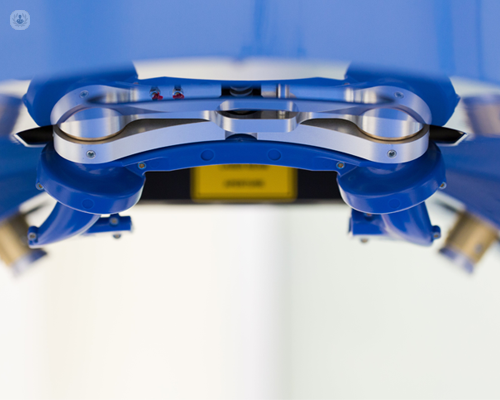Let’s get this clear: how safe is laser eye surgery?
Autore:Laser eye surgery is a popular procedure to improve vision impairments. What does it actually entail though? If you are considering the procedure, you may be concerned about how safe it is. After all, the eyes are a delicate and highly-important organ. Esteemed London-based consultant ophthalmologist and laser eye surgery expert Mr Alexander Ionides shares his expertise on the procedure, discussing how safe it is and some complications patients should be aware of.

What is laser eye surgery?
Laser eye surgery is a method of reshaping the cornea using an excimer laser to treat short sightedness, astigmatism and in some cases ‘long’ sightedness. Scans of the cornea and an eye examination can decide whether someone is suitable and safe to have the laser eye treatment. There are two main types of laser eye surgery, LASIK where a flap is created and the healing time is quicker, or a surface treatment known as PRK or LASEK (same thing) which takes longer to heal. The decision as to which type to have depends on the individual, the thickness of the cornea as well as the age and life-style of the patient. SMILE is another form of laser surgery undertaken in some centres but not included in this short article.
Is laser eye surgery safe?
Laser eye surgery is one of the most common surgeries performed worldwide and is very safe. The statistics show that complications are rare and the vast majority of people are very happy with the outcomes of laser eye surgery, which is why it is still so very popular. But nonetheless it is not without risk of complications.
What are the common complications of laser eye surgery and how common are they?
Some mild dryness and some mild glare at night soon after the laser tend to settle with time, in days or weeks or rarely months. If there is an over- or an under-treatment these can be retreated after a sufficient amount of time has elapsed for the eye to be ‘stable’ and the prescription, meaning the optician’s refraction, not to change, so that your surgeon knows what treatment is required for the re-treatment. Sometimes this can take up to a year to settle down before the re-treatment can be completed. Re-treatment rates can be as high as 5% and the people most likely to need re-treatment are those with astigmatism.
How can complications from laser eye surgery be avoided?
It is important to make sure your glasses or contact lens prescription is stable before considering laser eye surgery and 2 to 3 years of stability is acceptable in most cases. Small changes in your prescription are not significant and should not prevent you being suitable for treatment but this will be discussed with your eye surgeon who performs the surgery.
If you’re considering laser eye surgery and would like to book a consultation with Mr Alexander Ionides, you can do so by visiting his Top Doctors profile today.


